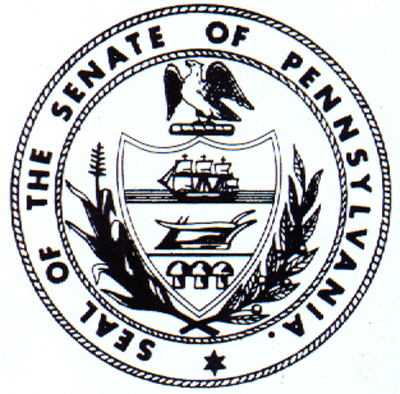|
|
||||||
ANTI-SPAM EMAIL MEASURE ADVANCES IN SENATE HARRISBURG, JUNE 15, 2004 Ė Legislation to deter unwanted spam email was reported out of the Senate Communications and High Technology Committee today on a unanimous vote. It had been amended into Senate Bill 885.The measure would make it a crime to use false or misleading information in the "from" address, the subject line or the header of an email. It would also prohibit false information from being used to register email accounts, and domain names, and it would restrict automated methods of generating email for spam purposes. The bill makes it a third degree felony, punishable by up to seven years in prison, for so-called kingpin spammers to generate a high volume of spam emails, or to use minors to send spam. Other criminal offenses under the statute are misdemeanors carrying lesser penalties. The amendment was the product of work by Senators Vince Fumo (D-Philadelphia), Jake Corman (R-Centre), Connie Williams (D-Montgomery) and the original sponsor of Senate Bill 885, Joe Conti (R-Bucks). "Harsher penalties and forfeiture provisions will give Pennsylvania another important tool in the fight against SPAM," said Fumo. "Itís time for the state to protect people and businesses from what has become the daily irritation of junk emails." The legislation was drafted in accord with the federal CAN-SPAM law that took effect on January 1, 2004 and provides the skeleton on which states can build their own anti-spam statute. "By itself, Senate Bill 885 will not stop the nuisance of SPAM. However, it is another cog in the wheel and should compliment the federal CAN-SPAM Act in bringing spammers before the bar of justice", said Conti. "This bill would provide a new consumer protection, which is sorely needed," Williams said. "New technology provides new convenience and opportunities, but can also present new challenges, especially to families. By deterring unwanted spam, we give individuals more control over what messages are coming into their homes and what their children may see." The bill allows private individuals to pursue damages against spammers. In addition, liquidated damages are available where there is a violation of the act and the violator had knowledge of an electronic mail service providerís policy prohibiting the use of its network to send spam. In addition, a court could direct a person convicted of violating the law to forfeit to the Commonwealth any money or other income received as a result of the violation, and to forfeit all computer equipment, data, software, financial instruments and other personal property used in connection with the violation. State Attorney General Gerry Pappert, American on-line, Microsoft and Master Card support the bill. The Communications and High Technology Committee received testimony from AOL estimating that spam accounted for 60-80 percent of the email traffic it receives from the Internet. A small company, Restek Corportation of Bellefonte, Pa., estimated that in a six-month period, 93 percent of the email that its servers processed was spam. According to a story earlier this month in the Washington Post, a study by Massachusetts-based Nucleus Research Inc. estimated that spam will cost large companies an average of almost $2,000 per worker this year. In a story in the Pottstown Mercury on March 29 of this year, officials of the Pottsgrove School District said that between 53-63 percent of the daily email that they receive is spam. Taxpayers recently paid for a computer upgrade for the district, in part because of the amount of spam. Anti-spam filters block some unwanted emails, but the volume of spam is rendering such filters less effective each year. If the bill is enacted, Pennsylvania would become among the toughest states in the nation in fighting unwanted emails. A clause in the bill assures that Internet service providers have the ability to develop and adopt policies to prevent the distribution of spam. # |


